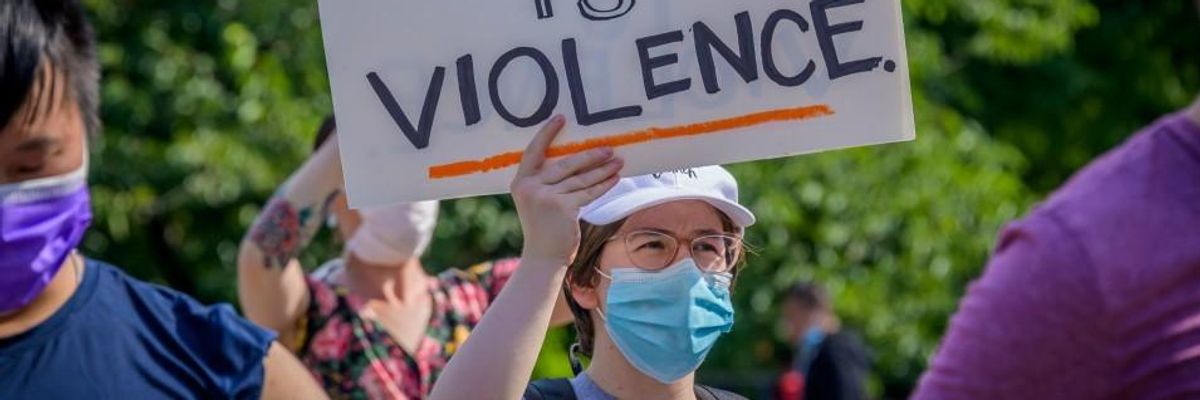Shortly after New York Gov. Andrew Cuomo announced an extension of his eviction moratorium via executive order, the state legislature offered additional protection to renters on Monday, passing a bill that Democratic lawmakers called the strongest in the country.
The legislation passed in a vote of 40 to 21 in the state Senate and at the time of this writing was poised to pass in the state Assembly.
Both the state Senate and state Assembly convened remotely Monday for special sessions to pass the legislation, a day after President Donald Trump signed the $900 billion coronavirus relief bill which he had delayed approving for several days. As Common Dreams reported Monday, the president's delay could cost millions of people a full week in unemployment benefits, intensifying fears that families will struggle to make ends meet in the new year.
Under New York's Covid-19 Emergency Eviction and Foreclosure Prevention Act, tenants who are struggling to pay rent due to the coronavirus pandemic will be able to declare that they're facing a financial hardship due to lost income, increased medical or family care expenses, or inability to find employment due to the crisis.
Tenants will not have to prove their financial hardship and will not be subjected to income limits.
"By enacting this comprehensive residential eviction and foreclosure moratorium, we are delivering real protection for countless renters and homeowners who would otherwise be at risk of losing their homes, adding to the unprecedented hardship that so many are facing," state Sen. Brian Kavanagh, a Democrat who sponsored the legislation, said Sunday as the special session was announced.
Cuomo's eviction moratorium is set to expire on January 1, and currently blocks landlords from evicting tenants only if the renter can prove financial hardship.
After courts in the state "have been remarkably unsympathetic to tenants' situations," Ellen Davidson, a staff attorney at the Legal Aid Society, told the New York Times, the new legislation is "going to save a lot of people's homes. It's going to save lives."
Under the legislation, which the Democratic governor is expected to sign, landlords will be barred from evicting tenants for the next 60 days in cases that are already underway in the court system. For renters who submit a new "Standardized Hardship Declaration Form" explaining their circumstances related to the pandemic, landlords will not be able to begin eviction proceedings until May 1.
The bill will also protect landlords against foreclosure and tax liens if they own 10 or fewer properties and will prohibit negative credit reporting and credit discrimination against owners who fall behind on mortgage payments due to the pandemic.
Ahead of the special sessions, Marcela Mitaynes and Jabari Brisport, who were recently elected to the state Assembly and the state Senate, respectively, wrote at New York Focus that a long-term eviction moratorium is "a matter of life and death" during a pandemic that has killed more than 37,000 New Yorkers.
"The most basic task of legislators in a deadly pandemic is to keep as many people alive as possible," Mitaynes and Brisport wrote. "If we take that task seriously, we must stop all evictions immediately. What greater hypocrisy could there be than to urge people to socially distance and stay at home--and then stand by as they're forced out of those homes?"
On Twitter, New York City Council member Brad Lander added, "It is not just unconscionable to evict people during a pandemic winter, it is deadly."
Judith Goldiner, attorney in charge of the Civil Law Reform Unit at the Legal Aid Society, said in a statement ahead of the special sessions that the legislation "will establish a bulwark against eviction that is one of the, if not the, strongest moratoriums in the country."
Goldiner warned, though, that lawmakers must remain committed to helping struggling New Yorkers for the duration of the pandemic and the economic recession--however long it lasts.
"House lawmakers must remain open to enhancing this legislation if we find ourselves still severely mired in the pandemic come May," she said.
